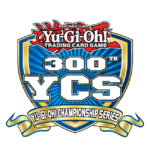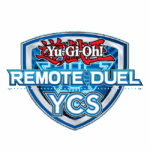
The Cost of Prevention
Today I’d like to talk a bit about one of the big “culture shock” moments many Duelists may experience when getting into Genesys: being unable to port your non-engine lineup to the new format. Let’s take a look at a recent Top 64 Onomat Ryzeal Deck from the NAWCQ. You can’t port this into a standard 100-point Genesys event as-is, not even close, but what I want to look at specifically is the non-themed cards in the Main Deck:
3 Ash Blossom & Joyous Spring (15 x 3 = 45)
3 Droll & Lock Bird (5 x 3 = 15)
3 Mulcharmy Purulia (10 x 3 = 30)
1 Nibiru, the Primal Being (10)
3 Mulcharmy Fuwalos (7 x 3 = 21)
1 Triple Tactics Talent (100)
1 Pot of Prosperity (50)
1 Crossout Designator (10)
1 Called by the Grave (20)
Total: 301 Points (OVER)
Take out the Prosperity and you get a very common spread of cards that’s got two-and-a-half Deck’s worth of points tied up in it. Obviously, you cannot roll up to a competitive Genesys event like this. And lineups like this are so common in Advanced that it might feel deeply sacrilegious to slash most or all of these cards from your Deck. But the important thing to keep in mind is that while the Decks in Genesys aren’t weak by any stretch of the imagination, you’re not going to be so far behind if you can’t stop your opponent’s turn 1 setup that you need 12-18 ways to interact on turn 1 going second.
In Genesys, the more economical approach is a board breaker approach. Removal after the fact will cost you fewer points than outright prevention, with the exception of the Solemns of course, but they themselves risk removal. This is by design, as it’s a key element of “Yesterday’s gameplay. Today’s cards.”
Additionally, because Genesys doesn’t use Link Monsters, the inputs and outputs of combos are far more closely related, so it’s easier to make a good choice on when to use the interaction you do have. This too is part of “Yesterday’s gameplay. Today’s cards.” The things a player can do unopposed with say, a Level 3 Tuner and a Level 4 non-Tuner are limited in scope compared to in Advanced.
And on top of that, don’t forget that powerful engine cards, consistency cards, and end board pieces also have points assigned to them, so your opponent also had to make difficult choices on what to include and what not to include. If you can figure out what they spent their points on, you can eliminate possibilities of what their hidden cards may be and give yourself an in-game advantage.
Deck-building in Genesys is different, but it’s a good kind of different! Rather than starting your Deck List with a list of defensive cards you feel you must play no matter what, try building your offense first, then tailoring your defense around what your gameplan is capable of on its own.


